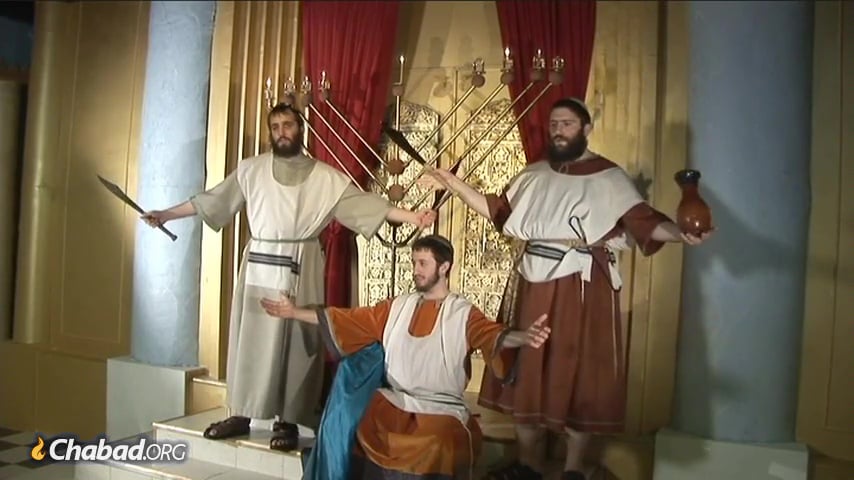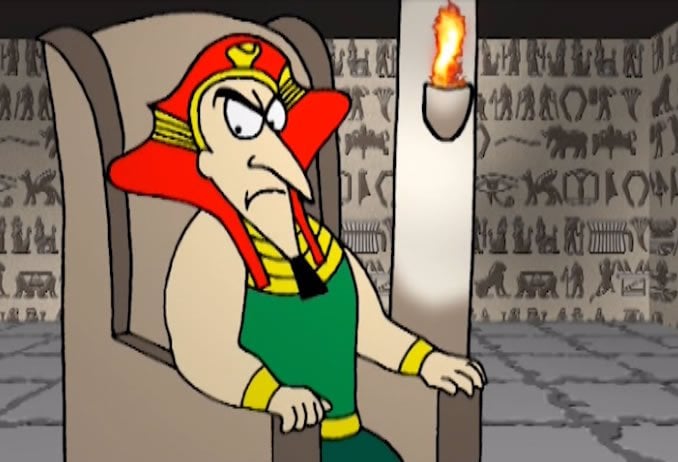
A Talmudic sage was once approached by a good spirit which guarded the local river. It told the sage that an unholy spirit intended to wrest control of the river, and make trouble for the Jews who came to use it. The good spirit instructed the sage: “Gather all the local Jews. When the evil spirit approaches, I will alert you. All the assembled should then stand in its path and shout: ‘Didan Notzach – Victory is ours!’” When the Jews did this a drop of blood appeared on the face of the water, illustrating their victory over the evil spirit.
































































































